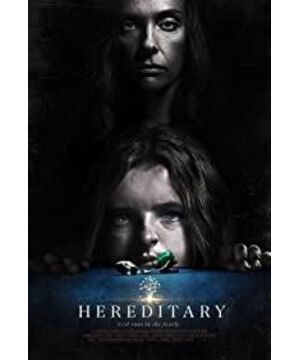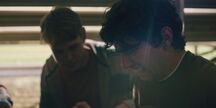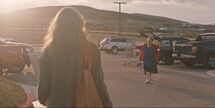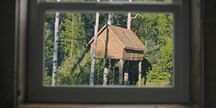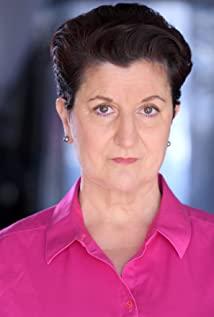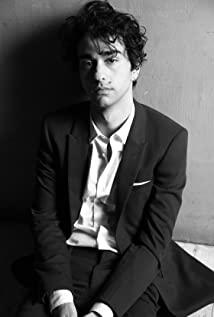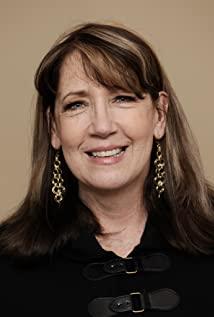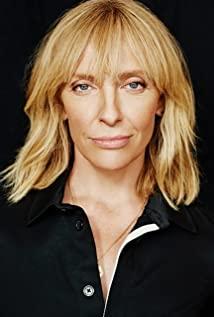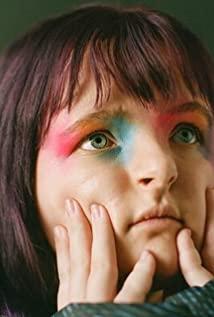Original: 'Hereditary' Filmmaker Ari Aster Answers Burning Questions (Spoilers) ( https://variety.com/2018/film/awards/hereditary-ari-aster-answers-burning-questions-1202841448/ ) By Jenelle Riley monkey paper wali
Warning: Lots of spoilers, if you haven't seen Hereditary, please read the following interview with caution.
Ari Aster's film "Hereditary Doom" opened last weekend (in North America), earning $13 million at the domestic box office at a cost of $10 million, and has been called by many viewers the scariest film of all time . At the same time, there are a lot of puzzling issues in the film, some of which sparked discussions as early as this year’s Sundance Film Festival premiere. Aster has previously addressed some of the other hot issues surrounding "Hereditary," arguably one of the year's hottest films.
"Hereditary" features the character Annie (played by Toni Collette), a wife and mother, and opens with the funeral of her mother, Ellen. In the film, we find Annie's relationship with her mother, Ellen, a withdrawn, cold, and mysterious woman, is complicated, and Annie's relationship with her own children is problematic. The son Peter is full of resentment against Annie, because Annie was sleepwalking one night and poured paint thinner on Peter, almost burning him; Peter's sister Charlie is very weird, and she also cut a pigeon in the early part of the film. head, and made it into a weird portrait.
Then came a series of tragedies: Chailie's head was brutally broken while Peter was driving, and Peter's relationship with his mother became strained. Later, Joan (Ann Dowd), a friend Annie met in the grief counseling group, tells her how to summon Charlie's undead. In the end, Annie and the audience discover that they are nothing more than pawns in an ancient ritual. This is a ritual dedicated to possessing the demon Paimon in Peter, and Joan is one of the believers, and his grandmother Ellen is also involved.
The film ends with Peter's body being possessed by Paimon, which is frustrating. However, Aster said that he should look at it in a different way. "If you look at it from the perspective of grandmother Ellen and the believers, this is a story that finally came to fruition." However, he also admitted, "This is of course a darker perspective. ”
(J=Jenelle Riley, A=Ari Aster)
J: You don't have children of your own, but you unearth the most terrifying nightmare in every parent's heart in the film.
A: Of course, I think I have a unique insight into these nightmares, and I don't need to be too explicit. In the beginning, I described the film as an existential horror film, which means it's about those insurmountable fears. How do you overcome the fear of death? How do you dispel the suspicion of those you are closest to but don't know very well? How do you overcome the fear of being abandoned? How do you overcome the fear of finding out that someone you know is changing a little bit? "Hereditary" focuses on such fears.
J: People can often find some of the filmmaker's own experience in the film. Do you have any experience with the occult or witchcraft?
A: I did look up materials on witchcraft and occultism before, but it has nothing to do with me. To be honest, I even find this process quite uncomfortable. But fortunately, the information finally (makes the film) a bit like that. I'm not superstitious per se, but I still get scared when I see some amazing ideas and methods of human beings. The concept of witches, for example, terrifies me because it describes a very inciting force with the purpose of conspiring to kill. (In the concept of witches,) people ignore each other's interests, only to murder each other, and actively spread this negative energy.
J: And the ignorance of this family (of the whole possession ritual) adds to the horror.
A: When I first created the film, I set the tone for the film: this is a story about an ancient ritual of possession from the perspective of a victim. And the audience, like the family, had a hard time figuring out what was going on from start to finish. However, I also hope to intersperse the film with some information and hints from other perspectives, so that although we are as ignorant as the family, the whole story itself has its own direction and logic. Everything in the film is unavoidable, like a natural progression, propelling the family to its finale.
J: There is a scene in the early part of the film that talks about free will (room for choice). But according to you, the family didn't have free will (choice) from the start?
A: Yes, of course not. I thought that scene was rather obscure. Everything is inevitable, and the entire family is helpless.
J: Is there nothing Annie can do to stop this from happening?
A: I don't think so, so I joined the doll house (this setting). The miniatures and dollhouses carved by Annie are a metaphor for their own situation: they are like dolls in a dollhouse, their fate being manipulated by outside forces, and any resistance is futile.
J: So Annie thinks that burning Charlie's graffiti would have prevented this from happening, but the first time she was on fire, the second time her husband Steve was on fire.
A: Exactly. This scene is Annie's greatest moment of redemption, as she sacrifices herself to save her son, but the brutal logic of the movie turns this beautiful redemption in vain. The right to choose is always in her hands. She thinks that the whole event has a fixed design and pattern, and if she sacrifices herself, she can break it all, but in fact there is no design or pattern at all, and there are no rules, just a Malicious logic is at work.
J: If Annie hadn't been deceived by Joan, could Annie have been able to prevent this from happening?
A: In fact, that scene was just a cover-up to mislead everyone into this idea. It looks like it's a psychic process, but it's actually a much darker spirituality ritual. They need Annie's participation to call the evil spirits into the room to complete their ritual. Annie completed the conjuration, but only accelerated the process of the ritual. This is all destined to happen, and all we see is how it happens. There are actually countless ways it could happen, and (Joan tricks Annie into conjuring a soul) is just one of them.
J: A lot of people are saying that Annie's mother, Ellen, is so bad. So is Ellen really giving birth just to complete the ritual?
A: Almost. Annie mentioned a lot of key information about this in her grief counseling group presentation, including what happened before this. In fact, this ceremony started a long time ago.
J: Early in the film, Charlie cut out the head of a pigeon to make a strange portrait. Can you explain?
A: I don't want to make it too obvious, but we'll find out later that Charlie is making more and more portraits, eventually forming a series and placing it (at Joan's house) as Paimon's shrine. At the same time, it is also a metaphor for what Paimon has done to the family. If you look closely at this series of portraits, you can see that these headless figures are kneeling in front of a dove-headed figure with a crown on it, and this scene is almost the same as the one we see at the end of the film.
J: Annie mentioned that her mother had a strong desire to control Charlie when Charlie was a child. Does this mean that Charlie is part of the (possession ritual)?
A: Charlie is Paimon's first successful host. In the end, Paimon was successfully transferred from Charlie to Peter.
J: Because Paimon needs a male body?
A: Exactly.
J: So does Charlie's original personality exist? Or was Charlie Paimon from the moment she was born?
A: From the moment Charlie was born, she was Paimon. Of course, there was a baby girl who was replaced by Paimon, but she was replaced from the start.
J: Such an explanation actually makes me feel a little relieved.
A: (laughs) How good is that. You see, isn't this a happy ending? But of course, in the end there was a boy who was also replaced, in a creepy way.
(End of translation)
(If you find translation errors or inappropriateness, please do not hesitate to let me know, thank you!)
View more about Hereditary reviews


